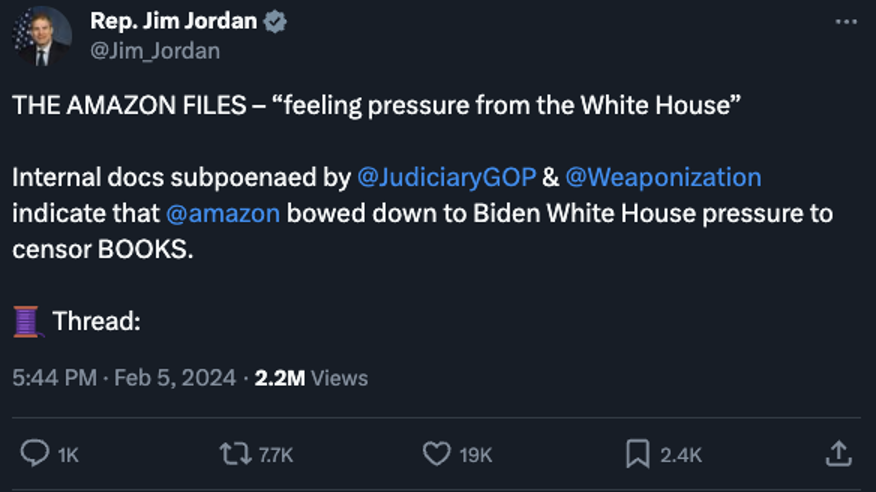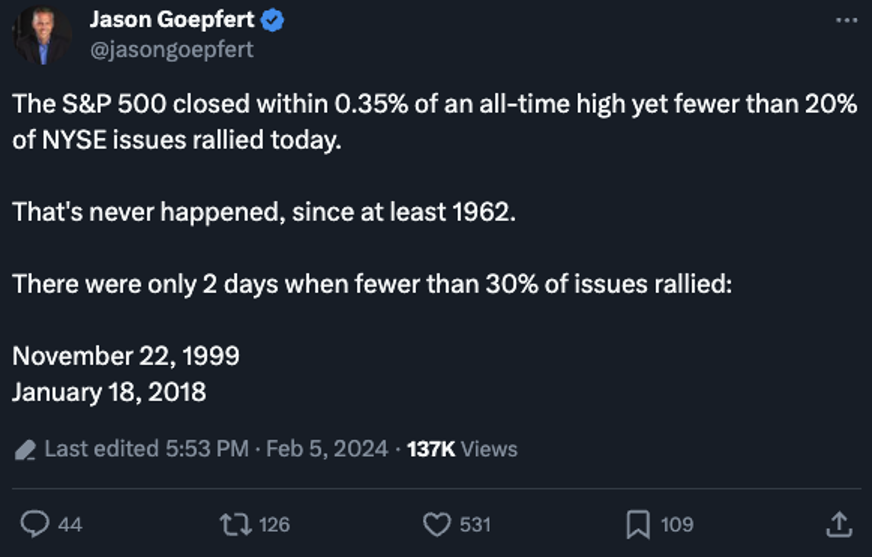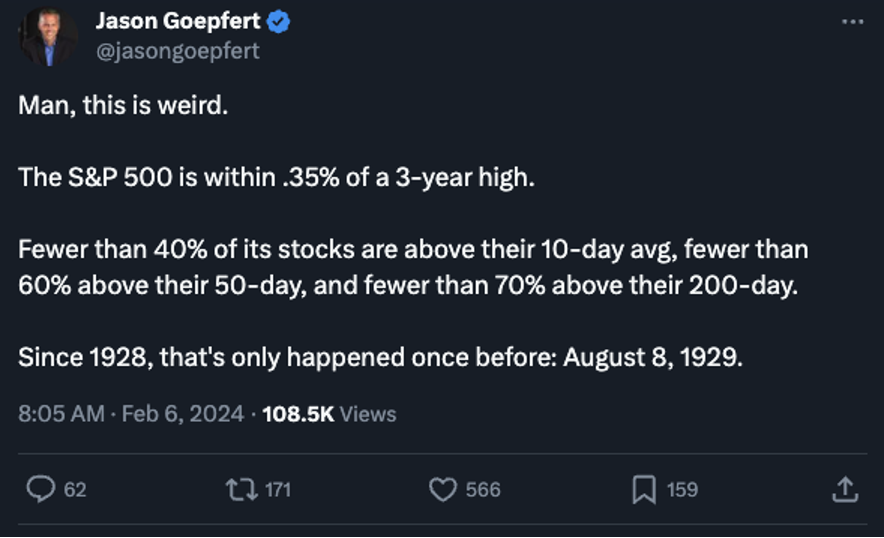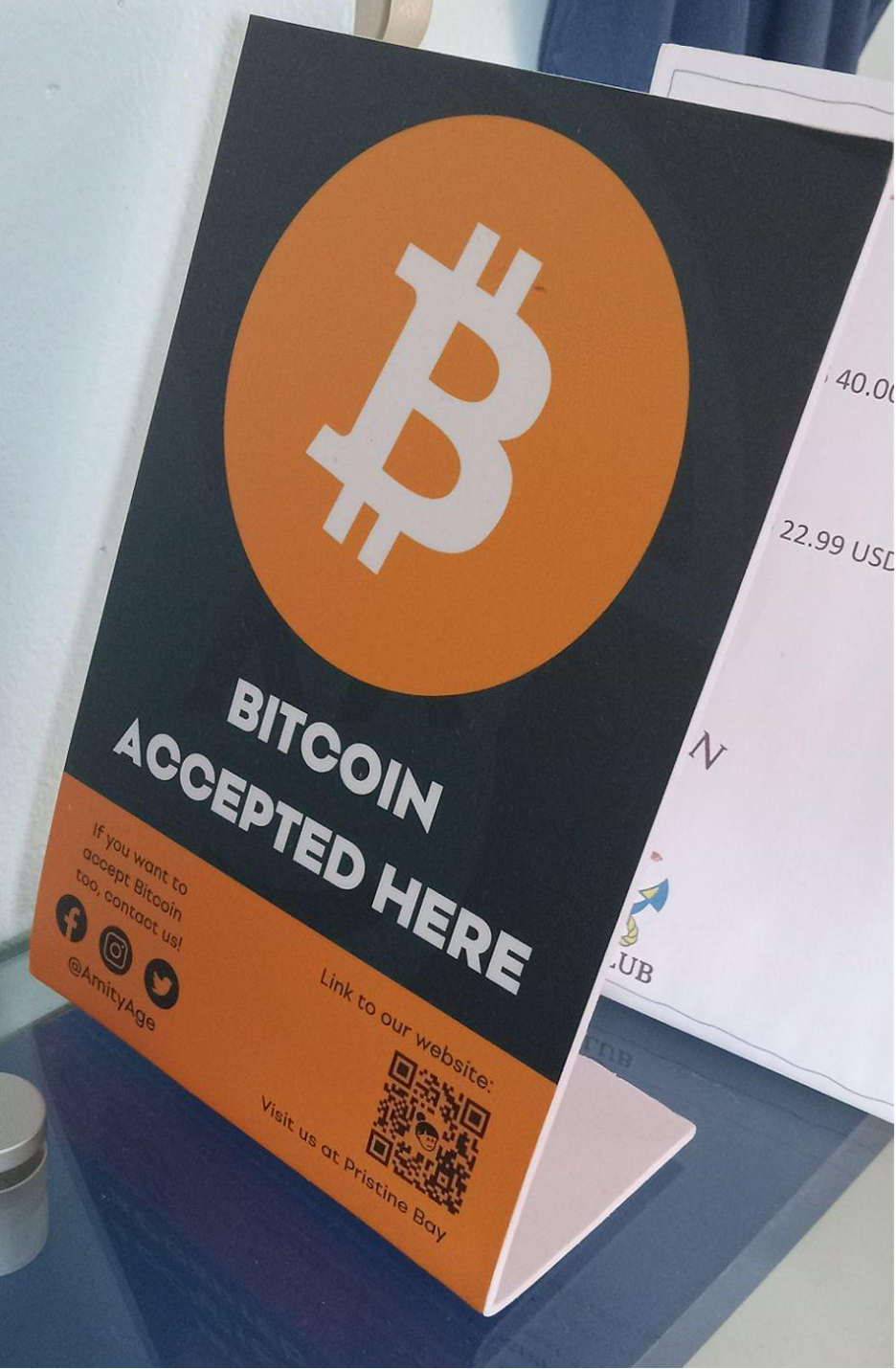Biden Bans Books
![]() Biden Bans Books (A “Shadow Ban,” but Still…)
Biden Bans Books (A “Shadow Ban,” but Still…)
 By now, the Biden administration’s attempts to censor social media are old hat. But book bans seem like a whole other level of authoritarianism…
By now, the Biden administration’s attempts to censor social media are old hat. But book bans seem like a whole other level of authoritarianism…

Yesterday, House Judiciary Committee Chairman Jim Jordan (R-Ohio) released a trove of emails obtained via subpoena — many of them dating to Biden’s first weeks in office during 2021.
On Tuesday March 2, Andy Slavitt — then a White House senior adviser on COVID — emailed colleagues: “Who can we talk to about the high levels of propaganda and misinformation and disinformation of [sic] Amazon?... If you search for ‘vaccines’ under books, I see what comes up.”
➢ If you’re curious, and if it matters: Slavitt is not an M.D. He’s an investment banker, straight outta Harvard Business School, McKinsey and Goldman Sachs.
 Judging by correspondence within Amazon that same day, it’s evident the pressure was already on.
Judging by correspondence within Amazon that same day, it’s evident the pressure was already on.
Whatever pressure was being brought to bear — we’re not yet privy to all the emails at issue here — Amazon didn’t take it well at first.
“We believe that retailers are different than social media communities,” said one email. “As a retailer, we provide our customers with access to a variety of viewpoints, including books that some customers may find objectionable.”
 Still, one week later — on Tuesday March 9 — Amazon execs met with Biden administration officials.
Still, one week later — on Tuesday March 9 — Amazon execs met with Biden administration officials.
The Amazon folks traded emails going into the meeting: They were obviously “feeling pressure from the White House.” They wanted clarity on whether Team Biden was demanding that certain books be banned outright — or whether they should just be buried deep in search results.
Within hours of the meeting’s conclusion, Amazon put “anti-vax books” under a “Do Not Promote” order, while contemplating “additional steps Amazon might want to take to reduce the visibility of these titles.”
Rep. Jordan promises the release of more correspondence in the weeks to come. Perhaps he figures this is enough of a bombshell for now.
 We’ll remind you this is not the first revelation of the White House trying to track and/or curb “misinformation” disseminated via books.
We’ll remind you this is not the first revelation of the White House trying to track and/or curb “misinformation” disseminated via books.
Recall that less than three weeks ago, the House Judiciary Committee also revealed details about how FinCEN — the Financial Crimes Enforcement Network within the Treasury Department — exercised an incredibly broad definition of “suspicious behavior.”
The agency ordered banks to track a wide range of “extremism” indicators in the activities of their customers. The indicators included purchases at Cabela’s and Bass Pro Shops — presumably because that’s where firearms can be purchased — but also “the purchase of books (including religious texts).”
Bibles, yes (Qurans, too) — but really, that could include anything that falls outside officially approved narratives.
As Jim Rickards pointed out yesterday to his Strategic Intelligence readers, “This activity is a clear-cut violation of the First Amendment (free speech, freedom of religion), the Second Amendment (right to bear arms) and the Fourth Amendment (no unreasonable search and seizure).”
Going forward, perhaps you might wish to reacquaint yourself with your nearest independently owned bookstore — assuming there’s even one around? — and transact in cash.
![]() Ominous Parallels in Market History
Ominous Parallels in Market History
 Hmmm…
Hmmm…

To be clear, this is a reference to yesterday. So let’s peel this onion…
Yesterday’s stock-market losses looked modest on the surface — the Nasdaq down 0.2%, the S&P 500 down 0.3% (from a record close on Friday) and the Dow down 0.7%.
But out of 2,912 companies whose shares traded on the New York Stock Exchange yesterday, only 511 ended the day with the share price higher — fewer than 20%. According to the above figures from Jason Goepfert — he’s the founder of the research firm SentimenTrader — that’s never happened in records going back over 60 years.
Further, as Goepfert claims, there were only two days on which fewer than 30% of NYSE-traded companies ended the day higher. The first was in November 1999 — a few weeks before the dot-com bubble burst.
The other was in early 2018 — just before a mini-panic that’s gone down in market history as “Volmageddon.” We won’t recount that history today; we’ll just point out that 2018 ended up being the first time since the 2008 financial crisis that the stock market logged a down year.
Goepfert was back online this morning with the most ominous parallel of all…

“Black Thursday,” the most epic crash in stock market history and the start of the Great Depression, came less than three months later — Oct. 24, 1929.
No, we don’t think Goepfert is saying an epic crash is just over the horizon. But he’s pointing out in a different way what we mentioned just yesterday: Only a handful of stocks like Nvidia, Microsoft and Facebook parent Meta are propping up the broad averages. Either the rest of the market needs to start playing catch-up… or else Mr. Market is in for a challenging few weeks.
 In the meantime, the major U.S. stock indexes are chopping sideways — the S&P 500 up a mere four points to 4,946.
In the meantime, the major U.S. stock indexes are chopping sideways — the S&P 500 up a mere four points to 4,946.
Treasury yields are inching down, the 10-year note at 4.12%. Precious metals are inching up, gold at $2,036 and silver at $22.37. Crude is back above $73, Bitcoin back above $43,000.
There are no market-moving economic numbers this week. The next one comes a week from today, the official January inflation figures.
![]() Public Service Announcement
Public Service Announcement
 Now for an update on the situation in the Red Sea…
Now for an update on the situation in the Red Sea…

We’ll leave it there for today — other than to point out that undersea internet cables are something we rely on daily, even if we never think about them.
I wrote something on the subject nearly a decade ago, with input from colleague Byron King.
![]() Postcard From Honduras: The Future Is Here
Postcard From Honduras: The Future Is Here
 “Steve Jobs once said if you want to predict the future, look to the fringes. Well, this is as fringe as it gets,” writes Chris Campbell from Honduras.
“Steve Jobs once said if you want to predict the future, look to the fringes. Well, this is as fringe as it gets,” writes Chris Campbell from Honduras.
Chris wears several hats for us at Paradigm. Among others, he helms the Altucher Confidential e-letter and serves as James Altucher’s senior analyst on our Early-Stage Crypto Investor trading advisory.
To call the gathering he’s attending for the next month or so “cutting-edge” doesn’t begin to describe it.
“I paid for my residency with USDC. I paid for my lunch with Ethereum (on the Optimism blockchain). I paid for my dinner at my hotel with Bitcoin (Lightning Network).
“I’m in Roatan, a small island off the coast — the (other) unofficial crypto capital of Central America.”

 But don’t get the wrong idea. This isn’t a crypto conference. It’s a meeting of the minds encompassing crypto and AI and longevity — and that’s just the start.
But don’t get the wrong idea. This isn’t a crypto conference. It’s a meeting of the minds encompassing crypto and AI and longevity — and that’s just the start.
“For the next four weeks,” says Chris, “I’ll be living with 200-plus entrepreneurs, builders, lawyers, self-proclaimed geeks and widely recognized visionaries in a small place called Prospera.
“Prospera, if you don’t know, is a special economic zone (SEZ) and tech hub located on Roatan island in Honduras. It was established as part of Honduras' broader initiative to create Employment and Economic Development Zones (Zonas de Empleo y Desarrollo Economico, or ZEDEs).
“Prospera operates under a unique legal and regulatory framework distinct from the rest of Honduras.
“The framework is designed to be business-friendly, focusing on attracting brainpower and international investment by offering a stable, efficient and transparent business environment.”
 Prospera aims to be the foundation for what are known as “pop-up cities,” where innovators can end-run the red tape that’s found in even the freest economies. Short term, Prospera seeks to incubate 10 new companies and bring in 20 new full-time residents.
Prospera aims to be the foundation for what are known as “pop-up cities,” where innovators can end-run the red tape that’s found in even the freest economies. Short term, Prospera seeks to incubate 10 new companies and bring in 20 new full-time residents.
“By 2025–2026,” says Chris, “Prospera aims for 1,000 residents and more than five special economic zones. In 10 years, the goal is to have three–five city locations, and more than 10 million residents.”
Chris is on-site for an early-stage experiment that could, well, change everything. If you subscribe to a James Altucher publication, watch for Chris’ updates throughout February in the Altucher Confidential e-letter. And if you don’t already get Altucher Confidential, you can sign up on the right side of this page to get it in your inbox every weekday afternoon.
![]() Mailbag: Charging Money for What We Do
Mailbag: Charging Money for What We Do
 “I'm sorry, but I have got to take a completely different point of view,” writes a reader who takes issue with the fellow who wrote in yesterday asking why we charge money for coming up with investment recommendations.
“I'm sorry, but I have got to take a completely different point of view,” writes a reader who takes issue with the fellow who wrote in yesterday asking why we charge money for coming up with investment recommendations.
“I pay for my Paradigm subscriptions and appreciate that the picks ‘aren't just given away’ — along with the thoughtful, educative information that many of your writers contribute. Not to mention the political relevance to investing.
“To be kind to this new ‘subscriber.’ What a socialist thought, err... Oh, I thought of a lot of other things to call this notion
“Please stay in business, make me pay for my subscriptions and continue to market your publications any way you want to! I, for one, want you to stay in business. Just sayin’.
“Love The 5 for many years AND my paid subscriptions!”
 Alas, not everyone sees it that way: “If, as you say, your ‘livelihood relies almost entirely on subscription revenue,’ why are guys like you always bragging about how successful and knowledgeable you are and why we should all pay attention and follow your advice?
Alas, not everyone sees it that way: “If, as you say, your ‘livelihood relies almost entirely on subscription revenue,’ why are guys like you always bragging about how successful and knowledgeable you are and why we should all pay attention and follow your advice?
“I've heard before that you guys do indeed make almost all your profits off of subscriptions, but I wanted to believe you were rich because of your accomplishments in the stock market, not your BS in the newsletter biz.
“So thank you for clearing it up and putting a bullet through my delusions.
“YOU ARE MAKING ALMOST ENTIRELY YOUR LIVELIHOOD OFF OF DUMMIES LIKE US WHO PAY YOU FOR INFORMATION AND ADVICE. THAT MAKES YOUR ADVICE PRACTICALLY WORTHLESS! YEP, I GET IT NOW and I won't bother to renew when that time comes.
“What you should have said is, ‘People don't value free advice and even if they did, they would likely not take it and therefore earn nothing. It's important that people have 'skin in the game.' Otherwise they don't value what they get.
“That's reasoning I can accept, because it's true. But no, you divulged your closely, not so closely, guarded secret: Your advice isn't worth much and you fund your livelihoods conning people into believing you know what you're talking about, when you actually don't. Shame on all of you.”
Dave responds: This is a lengthier (and somewhat more cynical) version of a common complaint we hear: “If your advice is so brilliant, why not just trade it? Why publish it, with all the time commitment, to say nothing of the personnel and infrastructure that entails?”
The sublime answer to that question is: There are rewards to this line of work beyond the mere monetary.
The cheeky answer to that question is: Ego.
Financial newsletter editors have enormous egos. I oughtta know, I’ve worked with them for 17 years now. And that was after 20 years of working with TV news anchors!
But I don’t mean that in a negative way.
The best newsletter editors have strong opinions, frequently out of step with Wall Street and the financial mainstream. And they’re keen to share those strong opinions with people who might not be as financially savvy — but who suspect that the narratives sold by Wall Street and the financial mainstream aren’t all they’re cracked up to be.
Good editors are few and far between, but we attract them like moths to a flame — for good reason.
A typical denizen of Wall Street is always answering to someone — clients, advertisers, the board of directors. When he's not looking over his own back, he's kissing someone else's backside. If he thinks the stock or other security his firm is flogging is junk, he has to hold his tongue.
All those problems go away if he comes to work for us: He's beholden to no one. He can speak his mind. He can live where he likes — the beach, the mountains, the small town where he grew up.
Bottom line: Apart from the monetary rewards of publishing newsletters and trading services, there’s a satisfaction from, to borrow Seth Godin’s expression, “building tribe.”
As a subscriber to a Paradigm Press publication, you’re part of an uncommon bunch. We’re pleased you chose to place your trust in us.
And we recognize that earning your trust is not a one-shot deal — rather we have to earn it anew each day.
Best regards,

Dave Gonigam
Managing editor, Paradigm Pressroom's 5 Bullets










